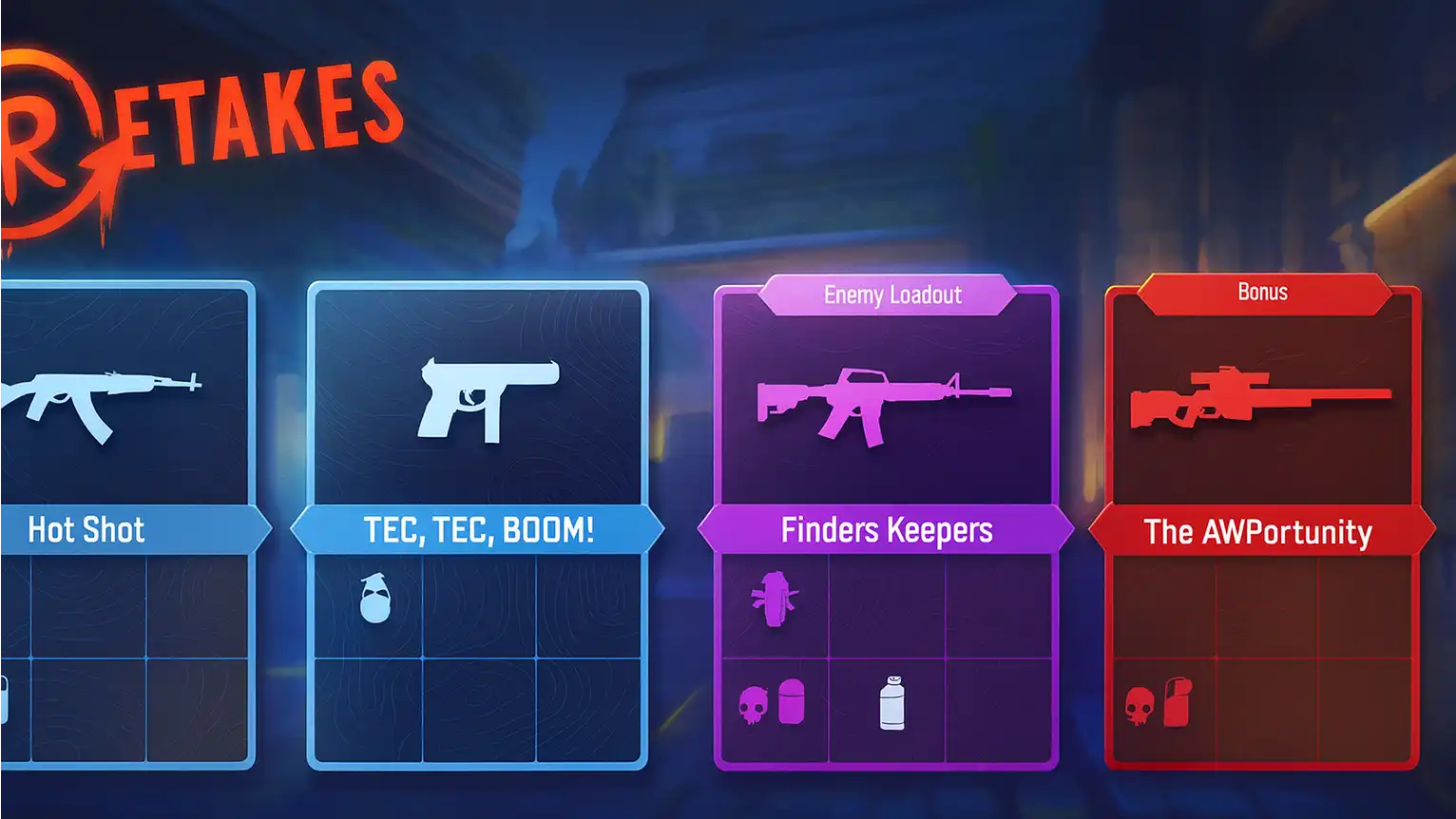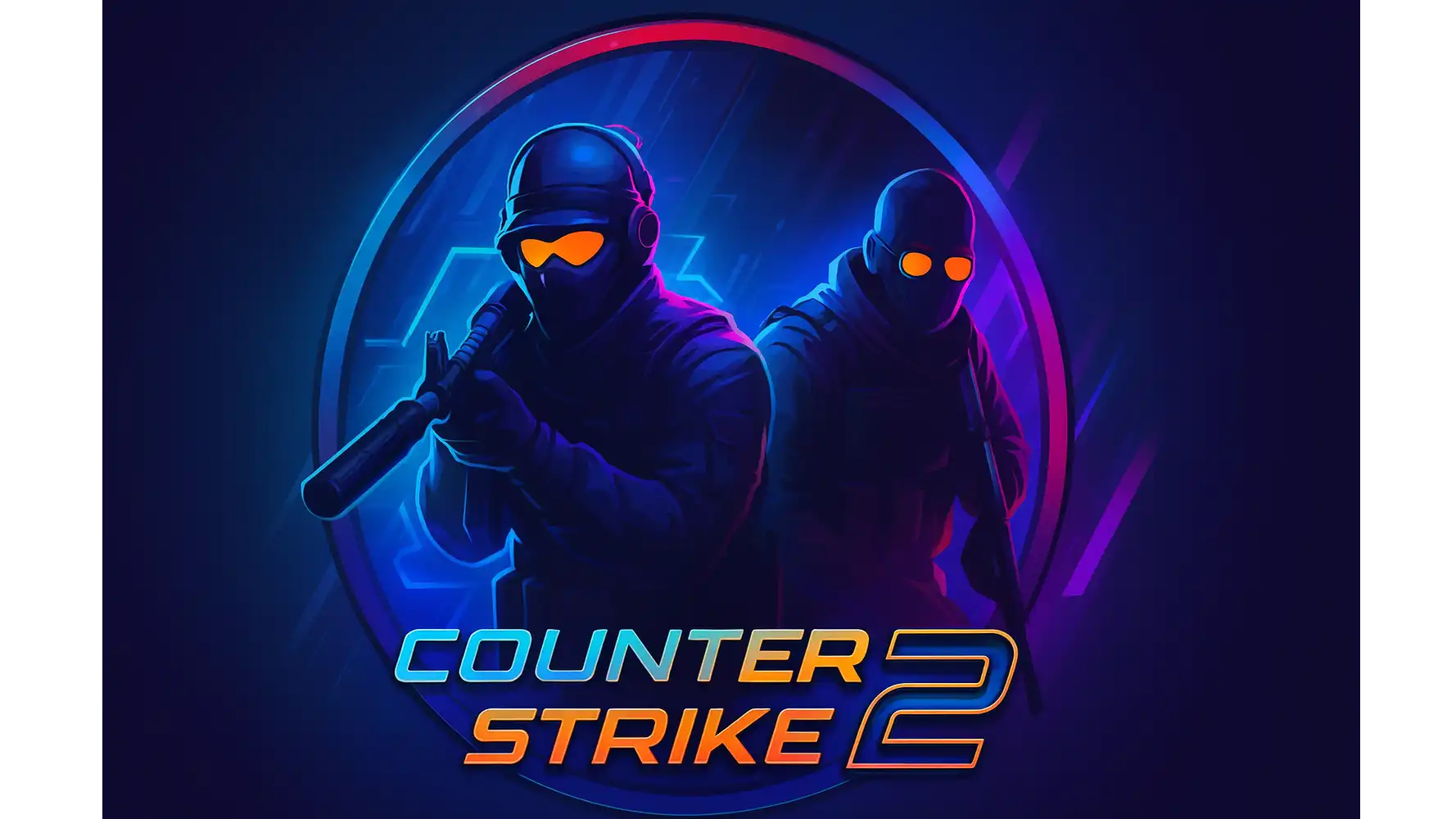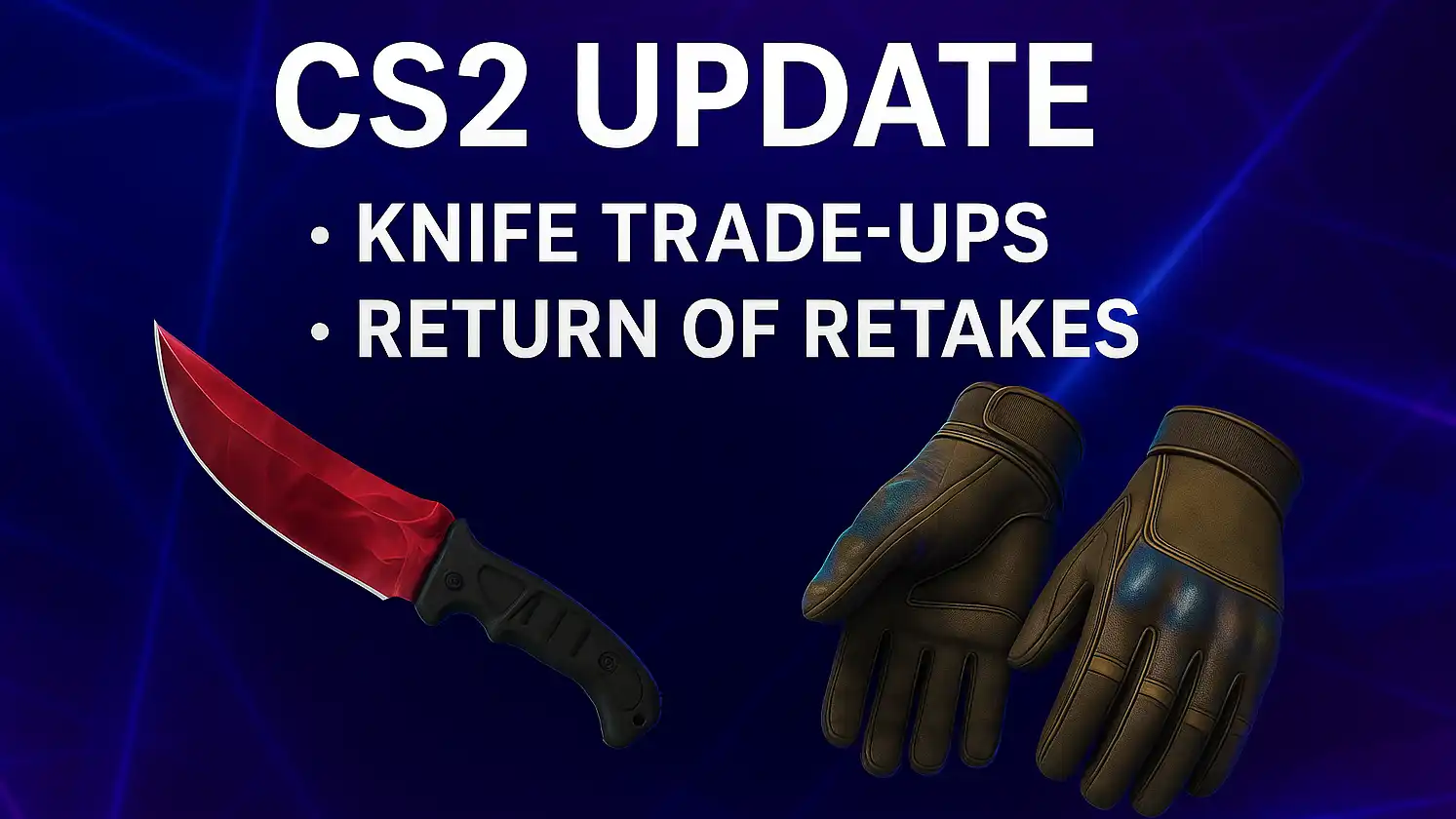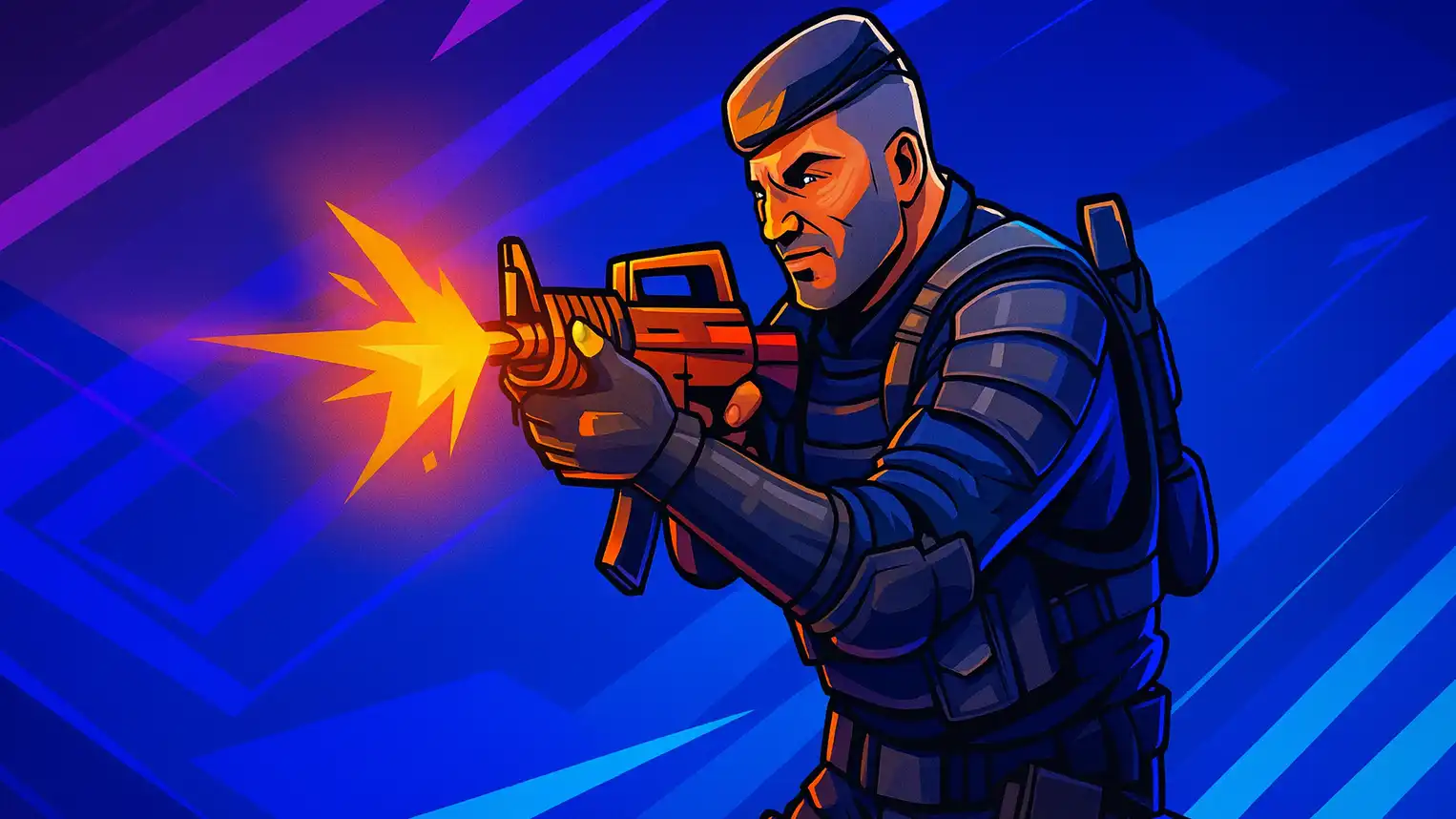Valve’s knife/glove trade-ups spark CS2 skin-market turmoil; Retakes mode returns

Valve’s knife/glove trade-ups spark CS2 skin-market turmoil; Retakes mode returns
A small line in the patch notes has had outsized consequences. Valve’s 22–23 Oct update for Counter-Strike 2 reintroduced the official Retakes mode and—crucially—expanded the Trade-Up Contract so players can exchange five Covert-quality items for a guaranteed knife or a pair of gloves (StatTrak → StatTrak knife; non-StatTrak → knife or gloves). Within hours, third-party trackers and outlets reported a sharp repricing across the cosmetic economy, with estimates of $1.7–$1.75bn wiped from portions of the market and broader claims ranging $1–$2bn as volatility rippled through listings.
While Retakes’ return drew positive reactions from competitors and practice server communities, it was the contract change that dominated headlines. Dust2.us pegged the initial drawdown at about $1.7bn, noting aggressive undercutting on high-tier items as holders scrambled to re-price risk. Esports Insider’s explainer described overnight losses “over $1.75bn” tied to the high-end segment most exposed to knives/gloves, while PC Gamer framed the shock as a course-correction that makes rares more accessible but rattles investors who depended on scarcity.
The practical change is straightforward but profound: knives and gloves—historically gated behind chance-based case openings or costly purchases—now sit at the end of a deterministic path that starts with Covert “reds.” That single mechanic compressed long-standing price spreads, forced repricing of Covert skins (inputs) and premium finishes (outputs), and created winners and losers almost overnight. Reports described marketplace lag and partial outages as traffic spiked, with players rushing either to craft new items or to liquidate positions into the churn.
Not every number agrees—and that matters. Dollar figures circulating on social media vary with methodology (Steam vs. third-party markets, spot vs. notional prices, thin-liquidity prints). PC Gamer cautioned that the CS2 economy’s speculative layer and crypto-adjacent pricing make point-in-time “loss” tallies contested. Forbes likewise summarized the dynamic as a high-end crash catalyzed by Valve’s tweak, without endorsing a single definitive total. What’s uncontested is the direction: knives/gloves generally trended down from pre-patch peaks; select Covert inputs jumped; and spread trades that relied on the old structure were arbitraged away.
Valve’s wider patch also made Retakes an official playlist (Defusal Group Alpha/Delta), updated several maps, and delivered stability and interaction fixes. For the competitive scene, Retakes formalization is a quality-of-life win—teams have used the mode for years to drill post-plant spacing and utility. The game-mode inclusion arrived alongside map/script changes logged on Steam’s backend and summarized by HLTV and community trackers.
Community sentiment is split. Traders and collectors highlight portfolio damage and liquidity gaps on thin markets; others call it “the best update for average players,” arguing that deterministic knife/glove access reduces reliance on gambling-style openings. Coverage also captured concerns about well-being among highly exposed traders as stories of large personal losses circulated—commentary that, while not quantifying incidents, urged caution and support within the community.
At the time of writing, Valve has not issued a detailed public statement addressing the market fallout beyond the posted notes; the official communications and patch summaries focus on features rather than pricing effects. Given Valve’s incentives center on engagement and platform health (not secondary-market valuations), observers expect the company to prioritize gameplay and ecosystem stability over defending old price hierarchies.
What it means next
-
Price discovery isn’t finished. As crafted knives/gloves work through inventories and arbitrage closes, expect continued volatility before a new equilibrium forms.
-
Meta effects are nil; practice effects are real. Retakes’ official return should boost structured practice and public matchmaking variety without touching pro balance.
-
Risk management matters. The episode underlines how policy risk—one line in a patch—can eclipse fundamentals in digital-item markets.
We’ll update if Valve provides further clarification on the contract rules or if third-party platforms publish audited market impact figures. For now, the takeaway is simple: a minor-sounding change just rewired the CS2 economy, and everyone—from casual players to professional traders—has to re-price what their inventories are truly worth.





